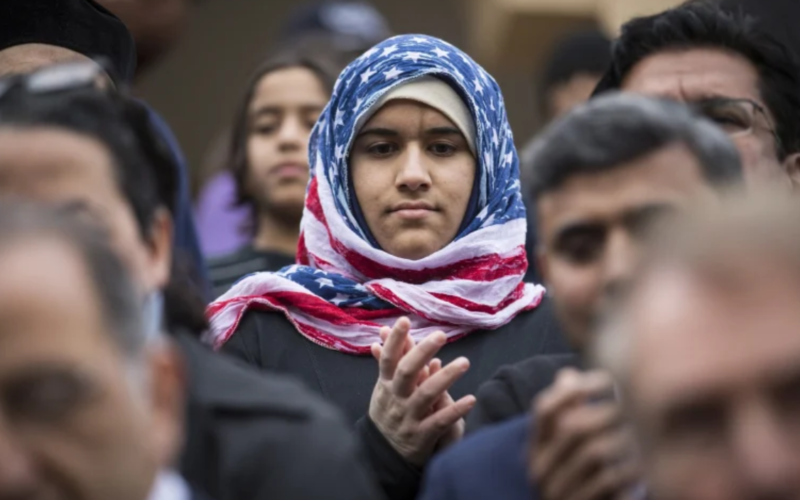Since October 7, the actions and policies of the U.S. Democratic Party have prompted increasing concerns among Muslim Americans who played a pivotal role in the 2020 election. The central point of contention centers on the United States’ stance on Israel’s actions in Gaza, which many see as inconsistent with their expectations. This shift in perspective has led to growing apprehension among Muslim Americans about the Biden administration’s policies and actions concerning the Gaza conflict.
A significant issue at hand is the perceived carte blanche given to Israel by the U.S. Democrats for its military operations in Gaza, prompting an unsettling shift in perception. President Joe Biden, who was initially viewed by many Muslims worldwide as a welcome change following the controversial Muslim ban during the Trump administration, has now been labeled “Genocide Joe.” Critics argue that his unwavering support for Israel’s sustained military campaign in Gaza and the treatment of Palestinians surpasses the actions of his predecessor, Donald Trump.
The ongoing conflict in Gaza has been a major source of concern, particularly as Israel’s punitive measures have been decried as violations of international law. These actions have resulted in thousands of casualties, disproportionately affecting women and children. The dissonance between events in the Middle East and the response in the United States underscores the complexities of the situation.
For Muslim Americans, the United States’ role as a partner in Israel’s military operations against Gaza and the perceived denial of essential resources to Palestinian communities, especially children, have been distressing. This situation has amplified their sense of vulnerability and deepened the perceived disconnect between them and the administration they helped bring to power.
Despite casting decisive votes for Biden in crucial states such as Michigan, Pennsylvania, Georgia, and Arizona, many Muslim Americans had anticipated a future characterized by greater inclusivity and respect. However, these expectations have remained unfulfilled, and they still find themselves living in the shadow of the post-9/11 era.
Furthermore, the Biden administration’s adoption of certain border policies initiated under the Trump administration and its recent association of Palestinian student groups with terrorism have further strained relations with these constituents. The potential consequences of these developments for future engagement remain a pressing concern.
In light of these issues, a growing number of disillusioned Muslim voters have voiced their intention not to support President Biden in the 2024 elections. The situation underscores the evolving dynamics of political engagement and the importance of addressing the concerns of this significant constituency.








